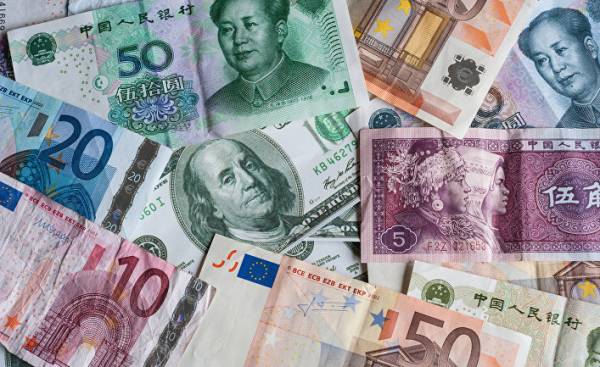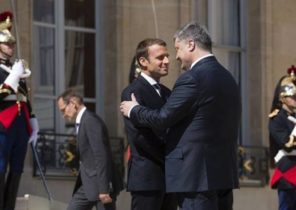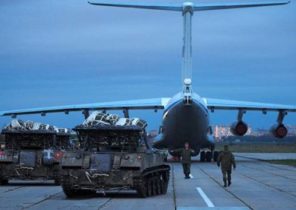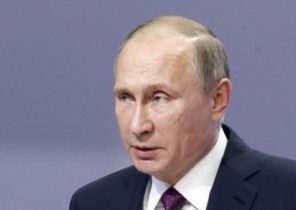
Despite the fact that Egypt has received from the International monetary Fund over ten billion dollars, the country still suffers from serious economic crisis. Raising taxes and strengthening the currency did not resolve the huge imbalance in the budget. The country is becoming more fragile and vulnerable to political and economic fluctuations taking place in Europe, America and the middle East.
In Tunisia, despite a loan from the IMF, promises of major European investment and aid package, the economic crisis is continually worsening. This prompted Tunisia to sign the agreement to allow direct trade with China through the Chinese currency — the yuan. Egypt resorted to deals with Russia, Turkey, Iran and Saudi Arabia, which, in turn, signed contracts and agreements with China for investments totaling about $ 65 billion. The signing took place with the personal participation of the king Salman bin Abdul-Aziz al Saud and of the President of China.
Trade agreement in Riyadh to Beijing coincided with the second visit of crown Prince Mohammed bin Salman to Washington, what was the reason for the emergence of thoughts about the existence of actual transactions. However, this visit was followed by the announcement of the lawsuit, which more than 120 US citizens filed in court in accordance with the law JASTA compensation in the amount of six billion dollars for the victims of the events of 11 September. This litigation have further complicated the already difficult relations between Riyadh and Washington.
The diplomatic world is full of smiles and handshakes, but it is also full of violent transactions, sometimes increasing the gap between countries. And here already there is no place for pleasantries. Handshakes and smiles, broadcast news agencies, do not necessarily reflect the realities on the ground. It is actually more ready for the next stage of the confrontation, rather than to the understanding.
China is engaged in a trade war, and its currency is currently at the forefront of the offensive. This allows him to provide a safe haven for countries concerned about the instability of the economic and security policy of the United States. The concerns of these States can also be a possible internal conflict or a situation of extreme polarization between the centres of power.
China proposes itself as the assistant, which will help to cope with political and economic instability in Europe and the United States. Economic indicators in the U.S. and Europe are not encouraging, despite the large numbers that circulate around an economic growth. In fact, the economic crisis is hidden within the political.
Sometimes the crisis is reflected in the requirements of the United States from allied and friendly countries pay political and military accounts in the form of investments or financial investments. Japan was the first by providing $ 450 billion in investment in the infrastructure of the United States, while Germany was billed for more than 350 billion dollars.
Berlin did not respond to the demands of the President of trump with the same attention and seriousness with which Tokyo responded. This is despite the increasing number of problems facing the European continent, and threats posed by Russia, the Mediterranean or China that compete in trade and politics. All compounded by an internal crisis, namely, to flare up independently of other conflicts in the countries of the Union. Most clearly seen on the example of a British exit from the EU, the growing influence of extreme right-wing, cultural and demographic crisis that will worsen in the coming years. Berlin is still trying to play a major role on the European continent and even there, what is beyond his capacity as the leader of the so-called free world.
Europe, despite its huge resources, cannot play a global leadership role in light of the ongoing internal division and its heavy historical heritage. Despite the provision of billions of dollars to the southern countries, such as Tunisia, Morocco, Egypt and Jordan, Europe is not the main or only actor in the global crisis. And it is a question of leading any simple observer or expert to the problem of finding appropriate mechanisms for the resolution of a new international equation. The problems appear on the international and regional levels, where the economy plays an important role in the formation of the original guidelines.
Jordan, for example, according to EU Ambassador in Amman, since 2007, received two billion dollars in aid in the form of various grants, and after last year’s London conference is a candidate to receive more than a billion dollars. But this fact did not stop the crisis resulting from the General decline in the region in the sphere of security, politics and Economics. The IMF program will not be able to stop the increasing deficit, to prevent social crises or to moderate appetites for loans. This prompted the head of one of the funds to say that economic reform will not be able to stop the process of imposing taxes, as it needs investments. The recommendations of the IMF in Egypt, for example, not limited to taxes, but, as is well known, apply to Egyptian pound.
Economic regulations, political and military options for resolving the conflict proposed by the West, are no longer a real solution to global or regional crises. Now they are a reflection of the crisis of Western countries, the crisis of the international system and regional subsystems, and the Arab world in particular.
The Arab world is most affected by these radical changes in the international system. Have questions about the next steps which would help to counter these radical changes, especially in light of the Arab summit (meaning the summit of the League of Arab States, which started on 29 March — approx. ed.). A number of Arab countries have acceded to the transactions in which the yuan acts as a currency exchange. This is an attempt to balance the reality in connection with uncertainty on the political and economic situation in the United States. The yuan has become a haven for those who want to prepare for the stage when the danger will become more serious, and the government will have to raise taxes or take out new credit package. However, this policy still remains humble and isolated, and its importance as a safety means is not so obvious.
Thinking outside the budget has become a bitter reality in the Arab world. The US is far from the political balance in many issues related to the region and belief in their ability to follow a specific and consistent policy is ridiculous. To associate myself with them obligations in the light of internal polarization and hidden economic crisis seems rather questionable idea, which many experts suggest to refrain. Now the Arab world needs in terms of emergency assistance and preventative actions that will help to avoid a new round of chaos and unrest that neither the Euro nor the dollar will not be able to resolve. And this is something that has not been discussed in the margins of Arab politics and the corridors of the League of Arab States.







